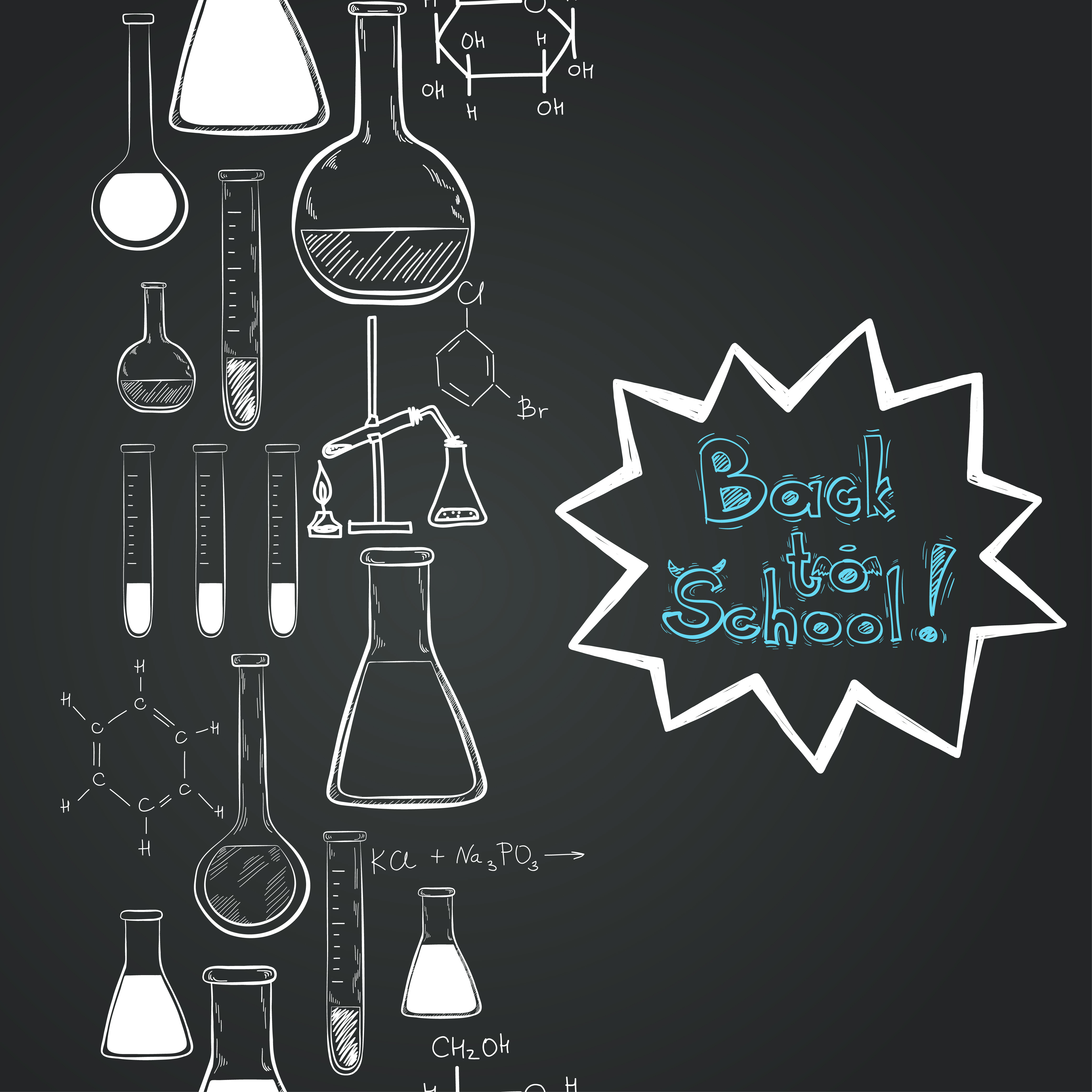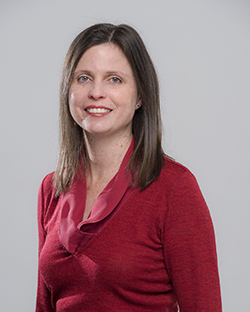As a scientist who loves science, it’s not a phrase I ever thought I’d be teaching my daughter, as well as justifying, however…. Never say never!
When your daughter is preparing for her inter-school primary debate as the affirmative with the topic “You can’t trust science” and looking to you for help in arguing the case with credible examples, what do you do? After going into shock I said “Ask your father” (a pragmatic metallurgist with an uncanny ability to retain and explain an infinite amount of complex facts). He was able to say of course you can’t trust science and began to explain why. He started with a scientific fact of the time, the world was flat, then it was the centre of the universe and Pluto was a planet. All things we know now not to be true.
He then went on to describe how Thaliomide was a medicine prescribed to pregnant women in the 1950’s to stop nausea which was later found to cause birth defects and death. And that DDT hailed as a pesticide to rid crops of insects also killed birds and other fauna as it concentrated in the food chain. So my daughter was off and running with examples and I was left to reflect.
Debate Day
Debate day came and three debates with groups of primary children aged 9 to 12 argued whether science could be trusted. The arguments given from both sides opened my mind to how those that do not understand science, scientists and the scientific process which always challenges the science of the day by continuously improving with new knowledge, fear and mistrust it.
What I heard from these very articulate children was their thoughts and their parents thoughts reflected in their comments on both sides of the argument.
On the affirmative “You can’t trust science” the argument centred on:
- Facts given by scientists change so how can we trust it?
- Scientists disagree on science so how can we trust it?
- Scientists don’t have all the facts, it’s flawed and limited by their available knowledge and equipment so how can you trust the science?
- Some scientific research is funded by large organisations so data could be slanted for business objectives
- Many scientists just publish data that fit their hypothesis
- Science causes pollution and is a threat to humanity
They pointed at small percentages of the population having adverse reactions to vaccines, the industrial revolution starting the pollution of the planet, the unsuccessful cane toad experiment in Queensland, which has resulted in plagues and science interferes with nature including the weather (climate change).
My faith in science was renewed when the negative took to the floor.
Arguing vigorously that you can trust science, students pointed out that we rely on and trust science every day in the innovations that improve our life and health including:
- Each day when you cross a bridge, drive a car, drink milk, shower, and wear clothes. You trust science
- Catching a plane - we trust it will stay in the sky
- Vaccinations have wiped out diseases and saved millions of lives
- The seat belt is trusted enough to be mandatory in every car
- Electricity, medicines and communication technology
- We can now predict and prepare for extreme weather events
“We can’t trust science” won out in the end – 2 out of 3 of the debates – which was related to the ability to rebut and in some of the examples put forward.
 So what did I learn from this exercise?
So what did I learn from this exercise?
- Fundamental understanding of science needs to be improved at all ages– Comments from children, their parents and the teachers involved without scientific backgrounds showed they had struggled to help the students prepare for either side of the debate.
- Scientific process is misunderstood - As a scientist we are encouraged to be curious and to challenge the boundaries of knowledge to acquire new knowledge and use it to improve our understanding of the world and improve our lives. Those in the community that do not understand that this process as normal and healthy fear and distrust it and scientists.
- Scientists are never going to have all the facts – New knowledge brings new understanding and a whole new set of questions. We also go about our lives making business and life decisions every day without all the facts. We just make the best decisions we can with what’s available. We need to be able to better communicate this non-issue with the community.
- Public perception matters – While we as scientists may feel good about we do and that we are doing the right thing for humanity, not everyone trusts that we are doing this. We need to be constantly communicating, informing and educating the public and government on our new developments so they understand its relevance and support it.
- Farmyard to supermarket teaching required – Just as some students are not aware of where their bacon and eggs come from – the line between the science and technologies we use and demand every day seems somewhat disconnected. Starting with the technologies that they use and working backwards with students on how it came to be could help with a better appreciation and understanding of what science delivers.
- Myths need to be put down hard and loudly with facts – Unfortunately, controversial figures get more air time as they are louder and use fear over fact. For example vaccinations have brought 7 major human diseases under some degree of control, eradicated smallpox and saved approx. 9 million lives/year worldwide. The benefits of vaccination greatly outweigh any risk. You are far more likely to be seriously injured by a vaccine-preventable disease than by a vaccine. Other contentious topics that require clearer communication of the facts and real risks with the Australian public to feel comfortable are cloning, genetically modified foods, nanotechnology, stem cell research, climate change and nuclear power.
Science is not infallible nor are the people using it. We rely on the accumulated knowledge of the day and ongoing research is conducted to continuously improve on this.
We should trust science as it does more to improve lives than harm it!
Nobel Prize winner Brian Schmidt and Climate Communication Research Fellow John Cook have both recently articulated how sensible, fact-based debates of science are skewed by fear-mongering, vocal science deniers who are given a disproportionate media platform to broadcast.
Schmidt said, “It hurts me when I see science not doing a good job defending itself on the basis of scientific argument. I feel science is empowered to defend itself but we need to do it in a way that is measured and reflects our scientific values.”
We need to focus our science communication better, by explaining the complex issues simply for the wider community.
Having reputable science speakers/ambassadors such as Nobel Laureate Brian Schmidt provide fact-based comment in the media on important scientific matters with clear simple messages goes a long way.
Resolution
After the debate I took my daughter and three of her friends back to school. We discussed their arguments for and against the topic and how they could have responded if they’d had more knowledge and understanding before the debate; i.e. researched both sides of the topic a bit more. We discussed while there may have been small amounts of risk and unknown to science, that’s part of our everyday life. We don’t stop driving because there are car crashes. We try to minimise the risk on everyone’s lives by using seat-belts, but living is a risk.
At home I asked my daughter – Do you trust science now? She said “yes and no”.
Yes, because of all the wonderful things that she learnt about and no because the debate has taught her to question science.
A future scientist in the making?
About the author:

Natalie Chapman is a commercialisation and marketing expert with more than 15 years of experience turning innovative ideas and technologies into thriving businesses. She co-founded her company gemaker in 2011 after almost a decade leading business development and marketing projects at ANSTO and, in 2013, won a Stevie Award for Female Entrepreneur of the Year in Asia, Australia and New Zealand. Natalie specialises in mining, new materials, environmental and ICT technologies. She takes technologies from research through to start-up, assisting her clients with commercialisation strategy, building licensing revenue, securing funding grants, tenders and more. Natalie heads corporate communications and is responsible for attracting investment, government relations and marketing communications at ASX-listed Alkane Resources. Natalie has a Bachelor of Science with honours (Chemistry) from the University of New South Wales and a Master of Business Administration (Marketing) from the University of Wollongong.
Reblogged this on It's About Time STEM Education and commented:
Great read!
“Science can be trusted if you separate it from the results.”
This would be one of the most concise, accurate and entertaining comments I have read. Please forgive the circulation I will give this line.
I’m just going to write a bit about how much I agree with the main thrust of this article, from my own perspective, as this is something that’s very much at the core of my interests.
“Science”, to me, isn’t the body of knowledge, it’s the process.
Science might suggest things which later are revealed to be incorrect, but science is the only thing that can prove it incorrect.
Science is the only way to know what we know and what we don’t know.
Don’t trust the results that science gives, sure, instead, be skeptical and analyse the results and how they were discovered.
Science can be trusted if you separate it from the results.
Consider and weigh the alternatives, between trusting your gut feelings or your own thought experiments versus the apparent conclusions of scientific experiments: Maybe a given experiment doesn’t prove a certain hypothesis beyond reasonable doubt, but do we have anything better to go off?
Of course joining in and supporting things like http://www.alltrials.net/ can potentially massively improve the trustworthiness of certain areas of scientific research, particularly in medical fields, as well as supporting government funding of scientific research so that longer term or more socially beneficial research can be done without having to convince a company of the short and mid term profit potential. Long term and open ended research topics can be very beneficial to the economy and to society, such as all the developments that came out of the space race.
The same can be said even if the motivation of the topic isn’t great: many useful inventions have come out of defense research, including the space race itself.
One final note: people didn’t really think the Earth was flat a few hundred years ago. People have known the Earth was round for thousands of years, but we didn’t quite know how big it was. Columbus thought it was a lot smaller so he named the American Natives “Indians” as he thought he’d made it to India.